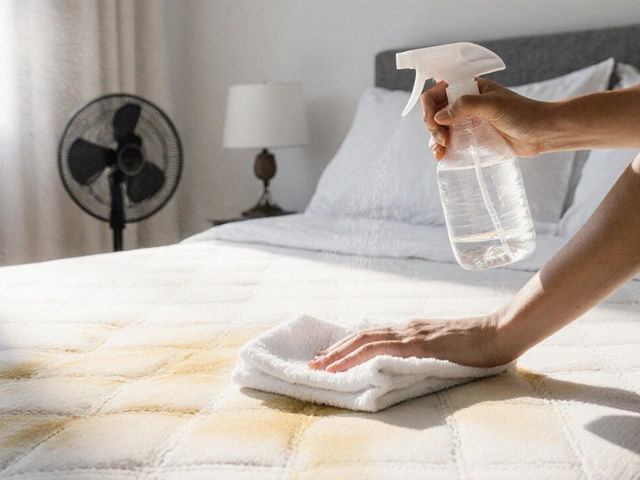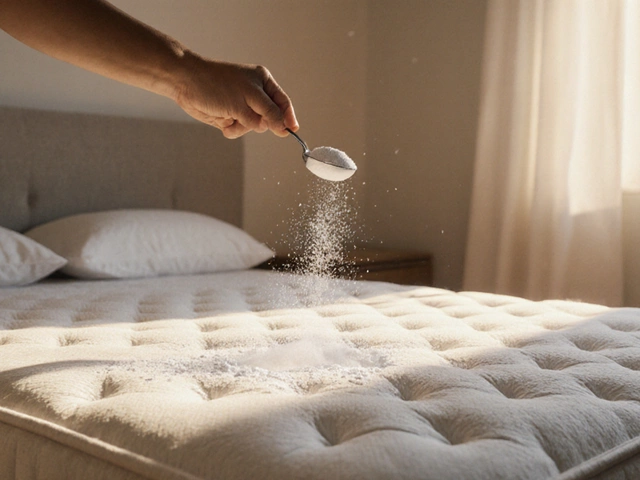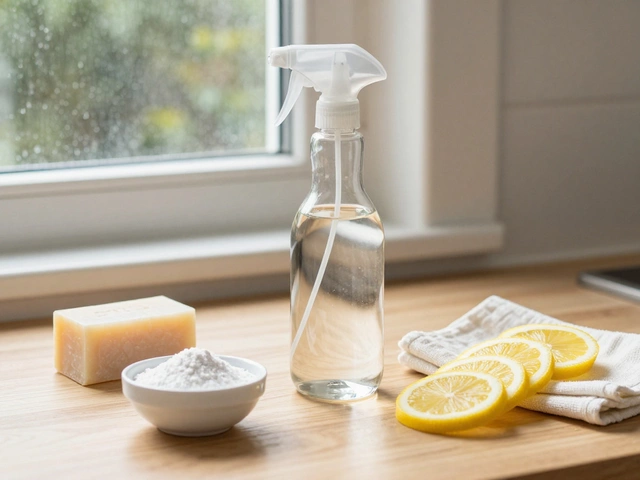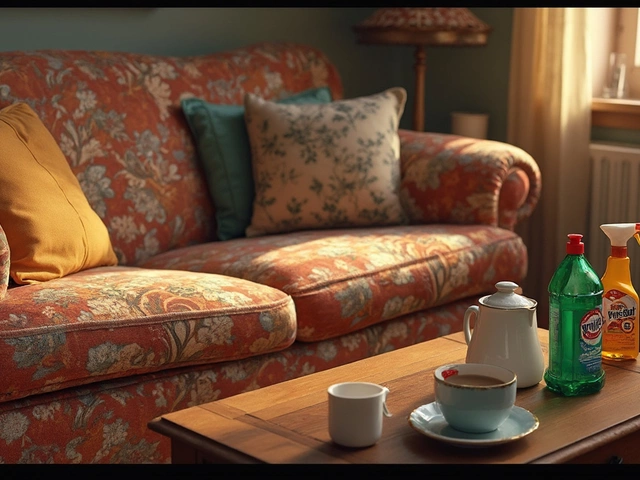Have you ever stopped to think about what's actually in your cleaning products? Many of the store-bought options contain harsh chemicals that aren’t just tough on dirt—they're tough on the planet too. But don’t worry, switching to earth-friendly alternatives is easier than you might think. Not only are natural cleansers gentler on the environment, they’re also better for your health and wallet.
Imagine your everyday white vinegar, baking soda, and lemon juice stepping into the ring against commercial cleaners, and you’re picturing a much more planet-friendly fight. These common household ingredients pack a powerful punch when it comes to tackling grime—without the side of synthetic fragrances or toxic residues.
- Understanding Earth-Friendly Cleaning Agents
- Benefits of Natural Cleansers
- Top Natural Ingredients for Cleaning
- Practical Tips for Green Cleaning
Understanding Earth-Friendly Cleaning Agents
When you hear the term "eco-friendly cleaning", you might picture products with green labels and flowery names. But what makes a cleaning agent truly earth-friendly?
An earth-friendly cleaning agent is typically made from natural, biodegradable ingredients that break down easier in the environment, unlike their chemical-heavy counterparts. This means they'll have a much lower impact on ecosystems—from our oceans to our air. Common culprits like phosphates and sulfates, often found in conventional cleaners, can be damaging to aquatic life. Switching to alternatives helps reduce this harm.
Why Go Natural?
There’s a good reason to make the switch. Traditional cleaners can contribute to indoor air pollution, carrying toxic compounds that you breathe in every day. By choosing natural options, you bypass this issue, creating a healthier home atmosphere.
What to Look For
When picking out natural cleansers, focus on those with ingredients you recognize, like vinegar, baking soda, and essential oils. Many companies now offer transparency in labeling, so it's easier than ever to know what exactly you’re bringing into your home.
The Industry Shift
In recent years, there's been a noticeable shift in consumer preferences. According to a study, the demand for sustainable cleaning products has increased by 15% annually. This trend reflects a growing awareness of ecological impact and personal health.
Ditching the overly complicated, chemical-rich options for simpler, more sustainable choices is a straightforward way to make a positive impact—both in your household and the world around you.
Benefits of Natural Cleansers
Switching to eco-friendly cleaning solutions isn’t just a trend — it’s a smart choice. Not only do natural cleansers get the job done, but they also come with a bunch of bonuses for you and Mother Nature.
Healthier Home Environment
The chemicals in traditional cleaning products can release harmful fumes that you end up breathing in. Natural options like vinegar and baking soda are fume-free and safe, even for the kiddos and pets. No more worrying about what you’re inhaling!
Reducing Environmental Impact
Many commercial cleaners rely on non-renewable resources and generate toxic waste. Natural cleansers, however, are usually biodegradable and kind to aquatic life. By choosing them, you're giving a big thumbs up to sustainability.
Cost-Effective Cleaning
Your wallet can definitely relax once you switch to green cleaning. Take a stroll down the baking aisle instead of the cleaning one — ingredients like vinegar and lemon juice are way cheaper than fancy-brand cleaners and even work better for some tasks.
Easy DIY Solutions
With natural ingredients, DIY cleaning solutions are a breeze to whip up. Need a glass cleaner? Mix one part vinegar with two parts water. It's satisfying and even fun to create a concoction that leaves your home sparkling.
Fewer Allergens
Those synthetic fragrances and dyes in commercial cleaners? Yeah, they can trigger allergies. Going green can help cut down on irritants, leading to fewer sneezes and itch-free days.
So, using natural cleansers doesn't just mean a cleaner home — it also means a safer and greener world. Hugging trees is optional but highly encouraged!

Top Natural Ingredients for Cleaning
When you're looking to clean your home in a way that's safe for both you and the planet, turning to reliable, natural cleansers is the way to go. Let's dig into some of the best ingredients that not only get the job done but do so without leaving a hefty ecological footprint.
White Vinegar
White vinegar is a superstar in the world of eco-friendly cleaning. Its acidity makes it perfect for cutting through grease and grime. Plus, it’s a great deodorizer. Use it in a spray bottle mixed with water for a general cleaner that works on windows, counters, and bathroom surfaces. Just beware: it's not great on granite or marble.
Baking Soda
Email out your cleaning woes—baking soda has got you covered. Its mild abrasion makes it fantastic for scrubbing stubborn stains and surfaces. Sprinkle it in the bathroom, use it in the kitchen, or even on laundry stains. It easily pairs up with vinegar for a bubbly cleaning duo.
Lemon Juice
Lemon juice is another hero in the green cleaning world. Apart from giving everything a fresh scent, it has natural bleaching properties. Use it to tackle kitchen sinks or combine with vinegar for a more potent mix. Remember, fresh lemon works better than the bottled version.
Castile Soap
Made from plant oils, Castile soap is a gentle yet effective cleaner. It’s non-toxic and great for all-purpose use. You can wash dishes, mop floors, and even clean your pets—all with a few drops diluted in water!
Essential Oils
Sounds fancy, but essential oils are more than just nice smells. Tea tree, lavender, and eucalyptus oils have antibacterial properties. Add a few drops to your cleaning solutions for a natural boost and a lovely scent.
Hydrogen Peroxide
An easy-to-find household item, hydrogen peroxide works wonders as a non-toxic bleach and stain remover. Keep it in a dark bottle since light decreases its effectiveness, and use it to disinfect cutting boards, clean bathroom tiles, or launder whites.
| Ingredient | Primary Use | Eco-Friendliness |
|---|---|---|
| White Vinegar | General Cleaner | Highly Eco-friendly |
| Baking Soda | Scrubbing Agent | Highly Eco-friendly |
| Lemon Juice | Bleaching Agent | Moderately Eco-friendly |
| Castile Soap | All-Purpose Cleaner | Highly Eco-friendly |
| Essential Oils | Natural Fragrance | Moderately Eco-friendly |
| Hydrogen Peroxide | Disinfectant | Highly Eco-friendly |
There you have it—your must-have list of natural ingredients to keep your home clean the honest way. If you haven’t jumped aboard the green cleaning train yet, these are the perfect ingredients to start with. It's amazing how effective these simple, planet-friendly products can be!
Practical Tips for Green Cleaning
Switching to eco-friendly cleaning practices might sound daunting, but it can be as simple as using the right natural ingredients and tools. Here are some practical tips to help you transition to a more sustainable, green cleaning routine.
1. Stock Up on Natural Ingredients
Naturally derived cleaners such as baking soda, vinegar, lemon, and essential oils are powerful cleaners. Baking soda acts as a natural abrasive, while vinegar tackles grease and kills bacteria. Add a few drops of essential oils like tea tree or lavender for fragrance and extra antiseptic properties.
2. DIY Cleaning Solutions
Making your own natural cleansers lets you know exactly what's in them. For an all-purpose cleaner, mix equal parts vinegar and water in a spray bottle. Add some lemon or a few drops of essential oil for fragrance.
3. Embrace Reusable Tools
Cut down on waste by using microfiber cloths instead of paper towels. They're more effective, last longer, and are easy to clean—just pop them in the washing machine.
4. Go Minimal with Products
Less is more. Stick to a few versatile products rather than a cupboard full of specialized cleaners. This not only reduces clutter but also simplifies your cleaning routine.
5. Be Mindful of Water Use
It's not just about the products. How you clean matters too. Use a mop with a removable, washable head, and avoid excessive rinsing to save water.
| Ingredient | Primary Use |
|---|---|
| Baking Soda | Abrasive and deodorizer |
| Vinegar | Disinfectant and grease-cutter |
| Lemon | Fragrance and stain remover |
| Essential Oils | Fragrance and antiseptic |
Remember, every small change contributes to a bigger difference. By adopting these green cleaning practices, you're making a conscious choice for a healthier home and a cleaner planet. Ready to roll up your sleeves?




